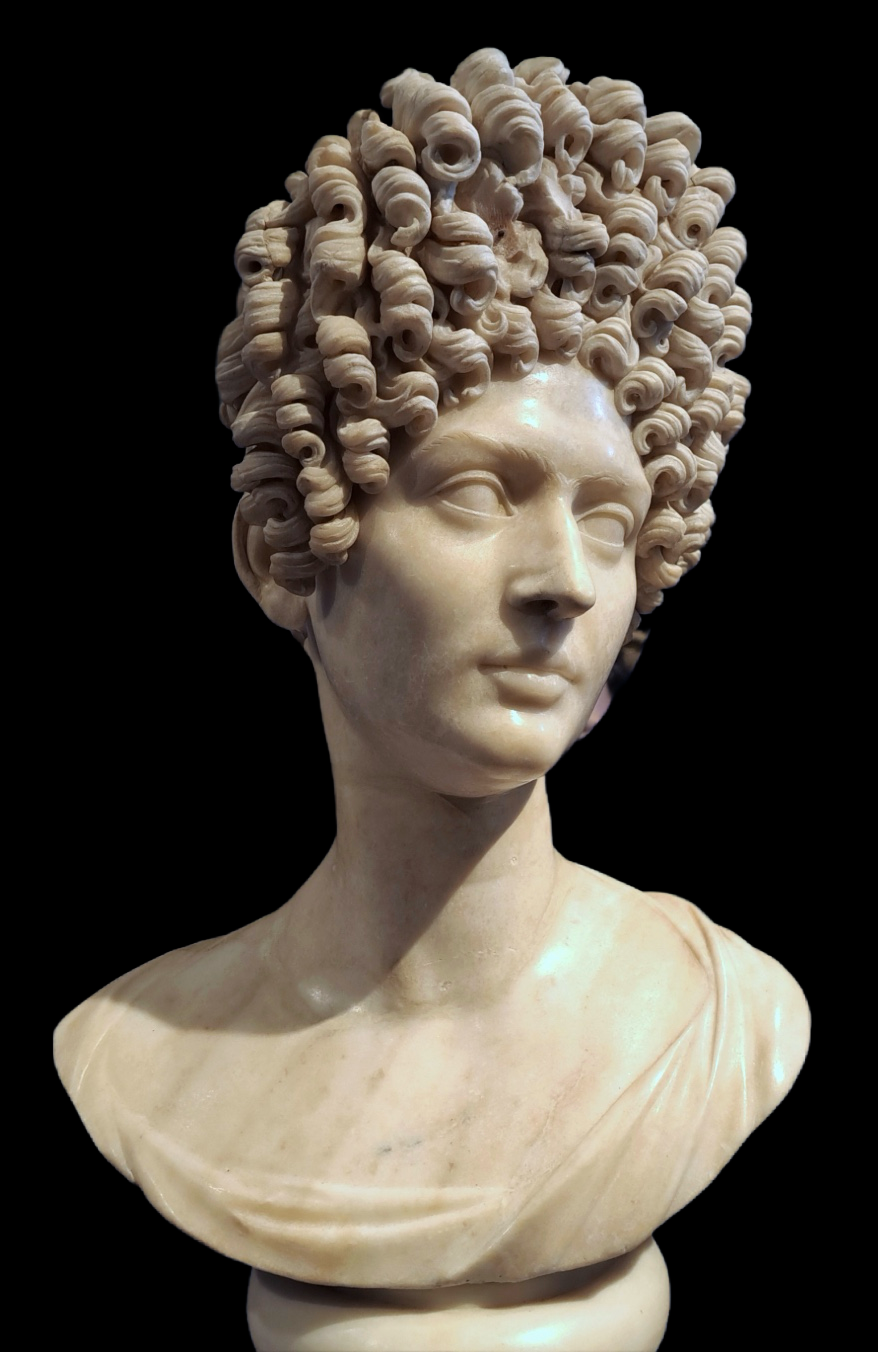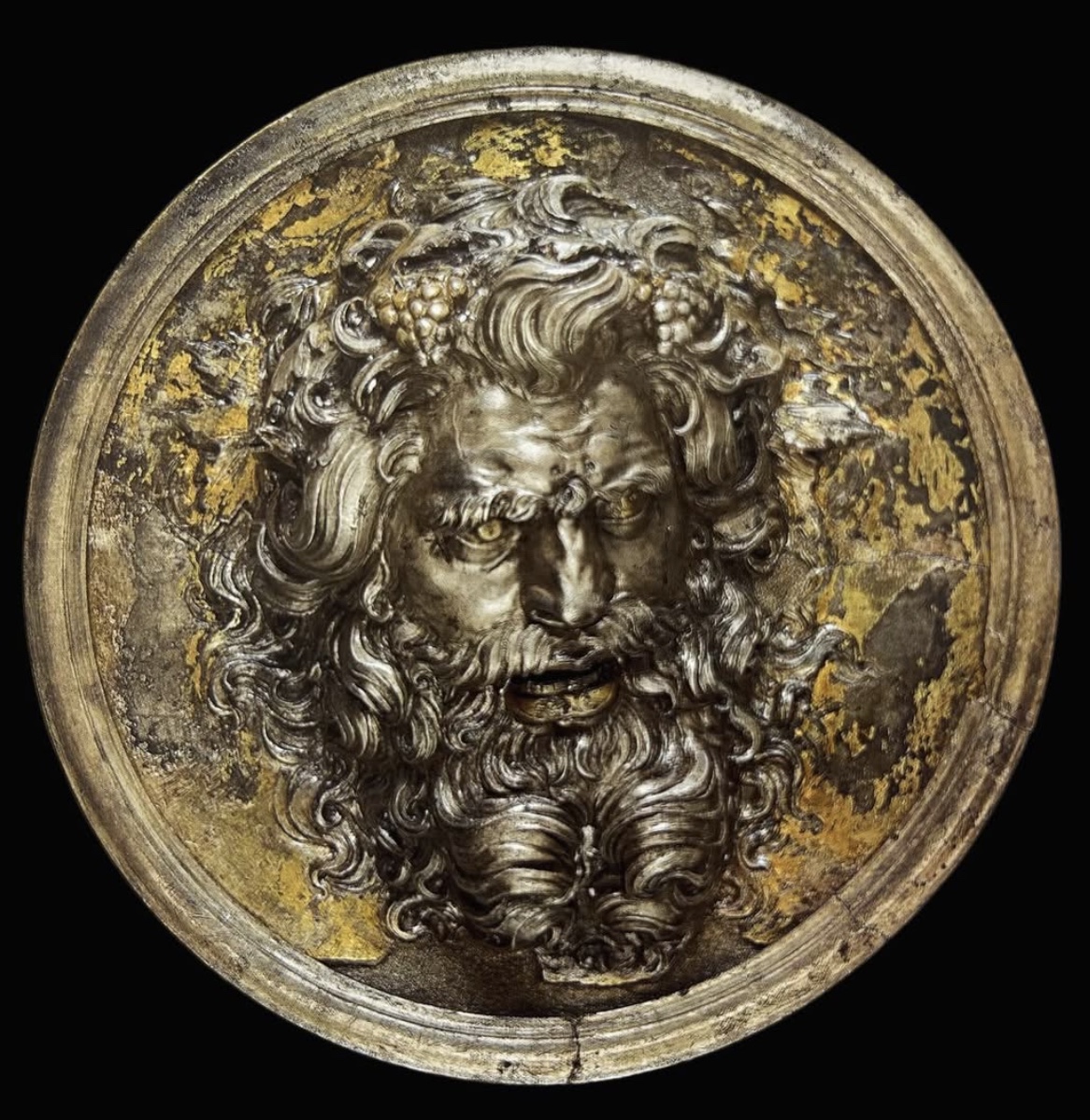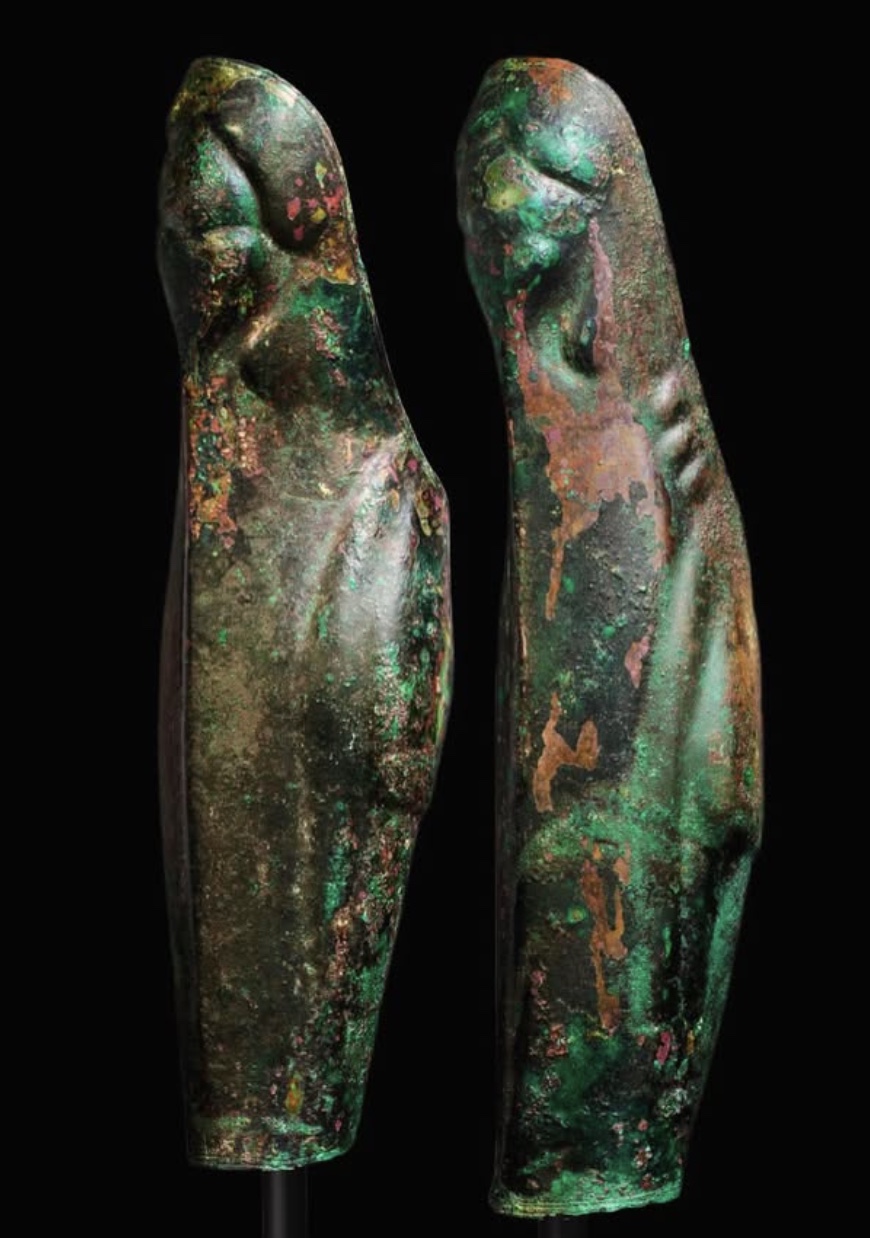Ever heard the phrase ‘Rich as Croesus’? It’s a bit out of fashion these days but refers to the last king (Kroisos latinised to Croesus) of the Lydian Empire and the fabulous wealth that he splashed all over Panhellenic sanctuaries. A large part of that wealth came from the Pactolus river running through the capital city of Sardis, where already several generations had been panning for alluvial electrum (a naturally occurring alloy of silver and gold, and quite an attractive one in my opinion).
Shown here is a ‘Croesid’ – on the obverse a roaring lion and enraged bull confronted. And while not the first coinage of Lydia (that distinction fell to Croesus’ father Alyattes, who produced electrum coins with a distinctive lion with knobby projection on his snout.
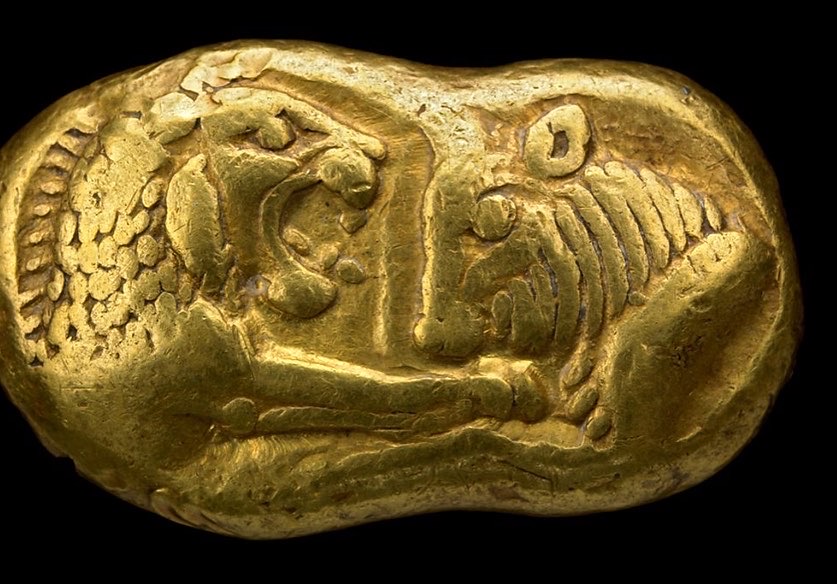
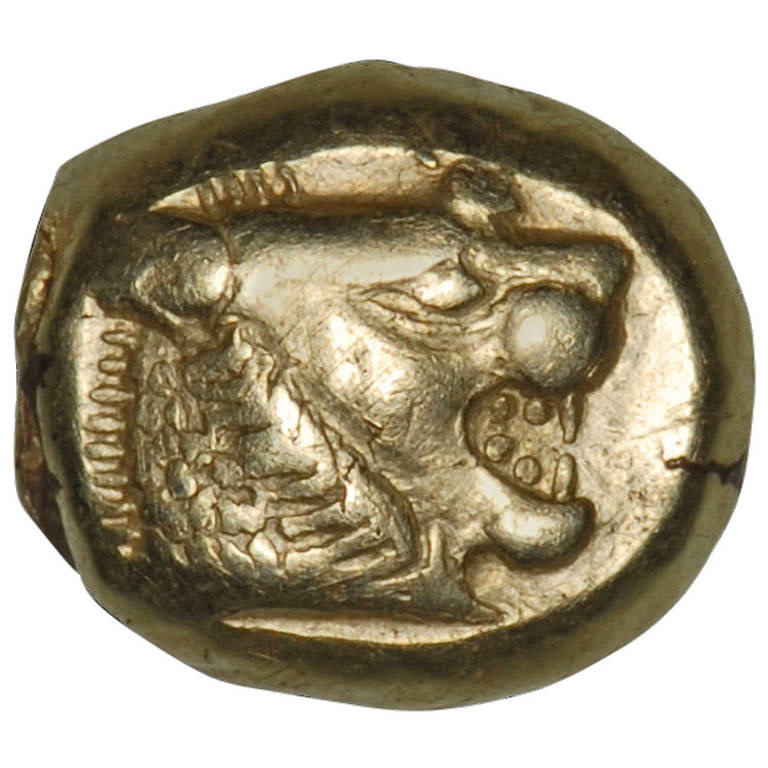

The real innovation that made ‘Croesids’ special was the process of refining of the naturally occurring electrum, separating gold from silver, guaranteeing a pure standard, and enabling the minting of denominations of coins and silver ca. 550 B.C.
Croesus had a hubristic streak, and when the Cyrus’ Persian army was steadily advancing towards Lydia he famously asked the Delphic oracle for a little guidance. She responded that should he attack Cyrus, “he would destroy a great empire.” Well he did attack, and he destroyed his own great Lydian empire. His personal demise is mythologized, but shrouded in mystery. Some more dramatic accounts (Herodotus, Bacchylides, etc.) indicate he tried to commit suicide on a pyre possibly to be saved by rain sent by Apollo…It’s a poetic image, and shown some decades later on an Attic amphora now in the Louvre

